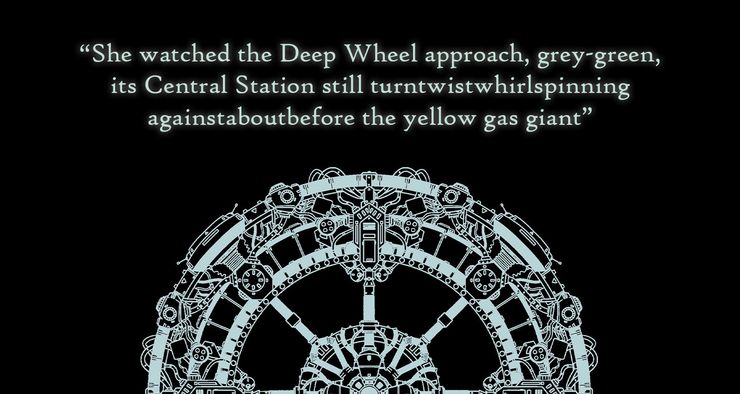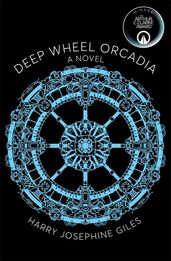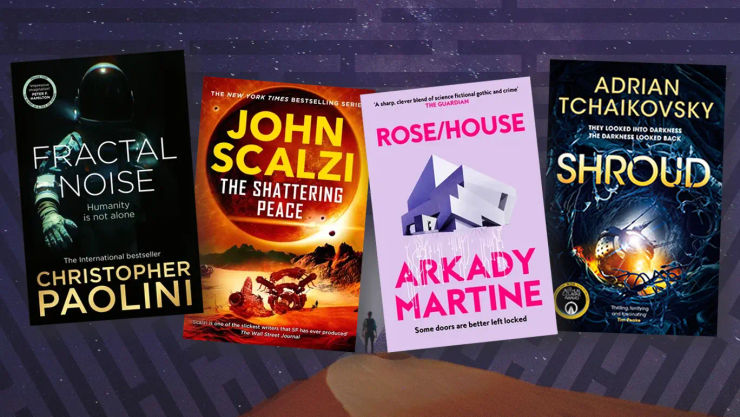Harry Josephine Giles on the Hidden Orcadian Language
When Harry Josephine set out to write a science-fiction novel, they had no intention of writing in the dialect of the Orkney Islands – it just seemed to happen.

Deep Wheel Orcadia is a magical, literary first; an adventurous story of an art student on a distant space station written in both English and the Orkney-language translation, side by side. Harry Josephine Giles, award-winning writer and performer, grew up in the Orkney Islands and is uniquely placed to pull off such an original piece of genre fiction.
Here, they reveal the origins of Orkney dialect, and how there was simply no other way they could have written the story of Deep Wheel Orcadia:
Folk keep asking me while I chose to write an Orkney language science fiction verse novel, and I can hardly blame them: such a pile-up of noun adjuncts demands the question. But the truth is that I didn't choose to write Deep Wheel Orcadia in the way I did: the writing started happening before I thought properly about why.
The Orkney language is, linguistically, a dialect of Scots, though we rarely call it that at home, preferring just "the wey we spaek". Scots itself, formally one of Scotland's national languages, is a sister language to English, grown from the same roots into a thrawn, disputed and often-pruned shrub. The Orkney variant is strongly influenced by Old Norse, and grew out of an older language, Norn, itself formed through the Viking colonisation of the islands that preceded Scottish influence. If that's confusing, so is all language: one of the appealing things to me about writing Orcadian is that it requires thorny exposition to trouble the history of things like "nation" and "language".
It's also just the language I grew up with, in the island of Westray (in Orkney the preposition is always "in" and never "on"), which my English family moved to when I was two years old, giving me a half-in half-out experience of both tongues that I'll never be clear of and have learned to embrace. I write in it because I need it to understand where I'm from and how I feel about it, but getting there was a long process of experimenting in many forms of English and Scots.
‘Writing science fiction in my small tongue is a way of willing that language into the future, and imagining worlds in which minority languages can thrive’
When asked to justify "science fiction" as a modifier for my work, however, the answer is less about my past and more about language's future. Writing science fiction in my small tongue is a way of willing that language into the future, and imagining worlds in which minority languages can thrive. Little languages, especially those thought of as rural and peripheral, are often cast as dwindling languages of the past. But in the same way that Orkney, far from being a backwater, is a world centre for marine energy research and has so many wind turbines we've maxed out our own grid (see Laura Watts' Energy at the End of the World for an anthropological history), islands can be laboratories for strange futures for language.
My own book was published within months of two other Orkney language poetry books: Kevin Cormack's Toonie Void (Abersee Press) and Gousters, Glims and Veerie-orums (GMB Fellowship), edited by Alison Miller. It also comes alongside recent work like Raman Mundair's A Choreographer's Cartography (Peepal Tree) and Roseanne Watt's Moder Dy (Polygon) which both use contemporary Shetland language from our neighbour islands.
Scots science fiction has its own lineage, in books like Matthew Fitt's But'n'Ben A-Go-Go (Luath) and Wulf Kurtoglu's Braken Fences. Other minority languages in these islands have taken their own approaches: like Owain Owain's Y Dydd Olaf (Gwasg y Bwthyn Cyf) in Welsh, part of a whole Cymruddyfodoliaeth (Cambrofuturism) movement, and Tim Armstrong's Air Cuan Dubh Drilseach (CLÀR) in Gaelic. Internationally, books like Nalo Hopkinson's Midnight Robber (Grand Central) have also used language itself as a science fiction technology, a means of transporting characters and readers between worlds.
Postcolonial and decolonial science fiction also writes through the trouble that languages like mine have been more often colonising than colonised: Orkney's significant role in the Hudson's Bay Company settler violence led to Orkney words being prominent in Bungi, the dialect of Red River Métis in Manitoba. Indigenous science fiction anthologies like Walking the Clouds (University of Arizona), edited by Grace Dillon, and Love After the End (Arsenal Pulp), edited by Joshua Whitehead, imagine Indigenous survivance beyond settler presents.
‘Minority language poetry and science fiction can be less of a surprise and more of an obvious necessity’
These minority language poetry and science fiction can be less of a surprise and more of an obvious necessity. Writing against English -- sharp against the background of English dominance, raging against the false inevitability of English glossophagy -- seems less like the exception and more like the norm. Anthologies like the National Poetry Library's Poems from the Edge of Extinction have highlighted the struggles of endangered languages, and are doing the work to support them, but that work is always the work of imagination creating worlds in which they can be.
The question I'd like to ask is "Why do you write in English?" Inwith and outwith the grand and sprawling beast of that international language are many other tongues and possibilities. The commonplace monolingualism of these islands is false and forced: everyone carries multiple ways of speaking within them. Unearthing languages in the present and growing them into the future is a demand and a joy.
Discover the Orkney dialect fully with Harry Josephine's compelling Deep Wheel Orcadia:
Deep Wheel Orcadia
by Harry Josephine Giles
Deep Wheel Orcadia is a remote and failing space station that is struggling for survival as the pace of change threatens to leave the community behind. It is here that Astrid and Darling first meet – Astrid on her way home from art school on Mars and searching for inspiration, and Darling, fleeing a life that never fit, searching for somewhere to hide. The strikingly unusual sci-fi setting is mirrored in the unique form of this verse novel, which is written in the dialect of the Orkney islands, with a parallel English translation.



